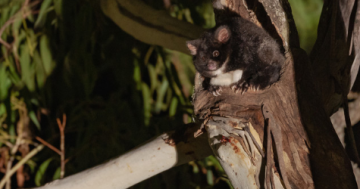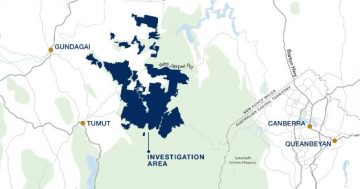
A halt to logging in parts of Tallaganda State Forest has been extended. Photo: File.
The NSW Environment Protection Authority (EPA) has extended a Stop Work Order until 13 November 2023 to cease harvesting in parts of the Tallaganda State Forest by Forestry Corporation of NSW (FCNSW).
An initial Stop Work Order was issued to FCNSW by the EPA on 30 August 2023. Since then, the EPA has recorded 89 endangered Southern Greater Gliders and 20 den trees in areas subject to the Stop Work Order. Those areas had been earmarked for harvesting or planned harvesting operations.
The Stop Work Order requires FCNSW to continue to halt all harvesting, haulage operations, and any road and track construction work in the areas of concern in the Tallaganda State Forest.
Acting Executive Director Operations, Steve Orr said the protection of the Southern Greater Glider was especially important given their increased reliance on unburnt areas of the forest following the 2019/20 bushfires.
“Given the high number of Southern Greater Gliders identified by the EPA at this point in the investigation, we have extended the stop work order for an additional 40 days,” Mr Orr said.
“Southern Greater Gliders are important indicator species, and their identification and protection are critical for the conservation of many native animals. It is very important that glider den trees are identified and protected prior to harvest.
“Native forests, including habitat for the Southern Greater Gliders, are still recovering from the impacts of the fires but their presence in high numbers suggests that parts of Tallaganda State Forest are providing important refuge.
“The EPA has a strong compliance and enforcement program for native forestry, and we will continue on with our investigations and take appropriate regulatory action where required.”
The initial Stop Work Order commenced after EPA officers inspected several active logging compartments in Tallaganda and located a deceased Southern Greater Glider around 50 metres from forestry harvest operations. It is not known how the glider died.
Failure to comply with a Stop Work Order is a serious offence and can attract a maximum court-imposed penalty of up to $1,650,000 and a further $165,000 for each day the offence continues.
The EPA’s investigation is ongoing.









